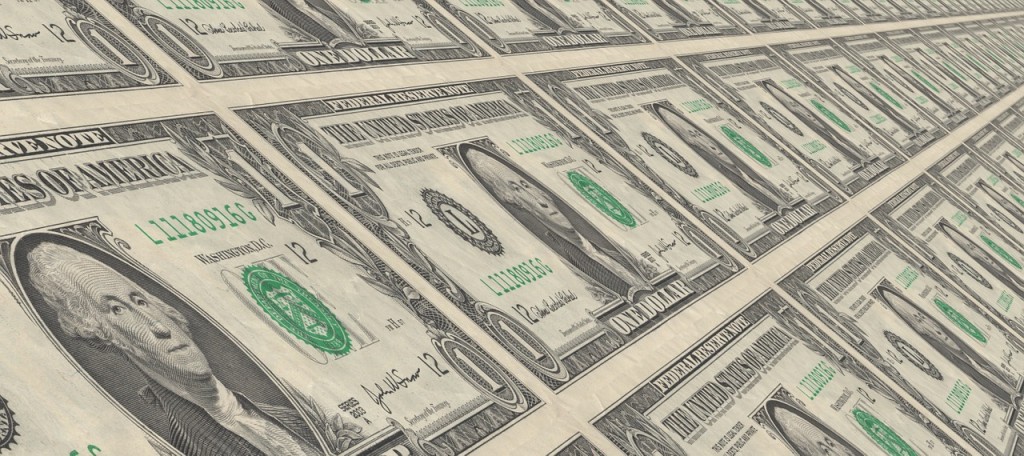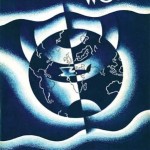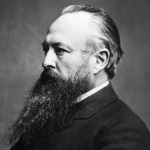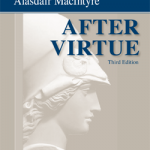 One of the Republican nominee’s more recent affronts to conventional politics was his statement in an interview that the United States should only honor its treaty obligations to Nato if it is in American interests to do so, and if Americans are properly “remunerated” for their trouble. Treaties, Trump says, are “deals.”
One of the Republican nominee’s more recent affronts to conventional politics was his statement in an interview that the United States should only honor its treaty obligations to Nato if it is in American interests to do so, and if Americans are properly “remunerated” for their trouble. Treaties, Trump says, are “deals.”
This, of course, evokes his book The Art of the Deal, which helped give him the national prominence that made his successful bid for the Republican nomination possible. Trump’s ghost-writer, Tony Schwartz, gave Trump a mythical status as a “deal-maker,” something he now regrets. I admit that I haven’t read the book myself, but the 1987 NYT review by Christopher Lehmann-Haupt describes it in terms at once ironic and awestruck. Lehmann-Haupt notes Trump’s arrogance and crudity, his smug belief in his own superiority, but finds it all rather endearing (thanks, Schwartz would now like us to know, to his skill as a ghost-writer rather than to Trump’s own charm). Lehmann-Haupt is impressed by Trump’s “elegant simplicity” (yes, he really said that), and dismisses the “lapses” founded in the book as “few and far between.” Lehmann concludes:
The more important fact is that he arouses one’s sense of wonder at the imagination and self-invention it must have taken to leap from his father’s shoulders and reach for the deals that he did. Jay Gatsby lives, without romance and without the usual tragic flaws. The secret really seems to be hard work, thorough preparation, detailed knowledge, careful planning, tight organization, strong leadership, dogged persistence, controlled energy, good instincts and the genetic ability to deal.
Mr. Trump makes one believe for a moment in the American dream again.
It’s like a fairy tale.
Nearly thirty years later, in June 2015, Lehmann wrote a lengthy and scornful analysis of the Republican candidates for the Presidency, concluding that the prospect of a Trump candidacy was the Republican Party’s “best short-term hope,” because “he can make anyone in his immediate vicinity look good.”
But it turns out that Lehmann the book reviewer of 1987 was more prescient than Lehmann the political analyst of 2015. His playful, condescending accolade for Trump the deal-maker got at the heart of Trump’s appeal as a candidate. Trump has managed to tap into one of the basic American national myths–the man with a natural “genius” for making deals, the man of “imagination and self-invention” who leaps and reaches and remakes the world. Crass and tasteless this mythical hero may be, “lapses” he may have, but all is forgiven, because he knows how to succeed.
Nearly eighty years before The Art of the Deal, G. K. Chesterton diagnosed the cultural corruption of the imagination that would make Trump a celebrity, in his essay “The Fallacy of Success” from his 1908 collection All Things Considered. Books about success, Chesterton says, are “the silliest ever known about men,” because they aren’t really about anything. There are only two ways to succeed in any particular enterprise: do good work, or cheat. But there is no general method for “success,” and there is no “insinct for making money” except the instinct that Christian tradition condemns as “avarice.”
Why, Chesterton asks, do people read books like this? Why do journalists gush over tycoons and intimate that there’s some great secret to the making of money, while being unable to tell us anything specific about it?
In such strange utterances [he’s been quoting a silly article about Vanderbilt] we see quite clearly what is really at the bottom of all these articles and books. It is not mere business; it is not even mere cynicism. It is mysticism; the horrible mysticism of money. The writer of that passage did not really have the remotest notion of how Vanderbilt made his money, or of how anybody else is to make his. He does, indeed, conclude his remarks by advocating some scheme; but it has nothing in the world to do with Vanderbilt. He merely wished to prostrate himself before the mystery of a millionaire. For when we really worship anything, we love not only its clearness but its obscurity. We exult in its very invisibility. Thus, for instance, when a man is in love with a woman he takes special pleasure in the fact that a woman is unreasonable. Thus, again, the very pious poet, celebrating his Creator, takes pleasure in saying that God moves in a mysterious way. Now, the writer of the paragraph which I have quoted does not seem to have had anything to do with a god and I should not think (judging by his extreme unpracticality) that he had ever been really in love with a woman. But the thing he does worship–Vanderbilt –he treats in exactly this mystical manner. He really revels in the fact his deity Vanderbilt is keeping a secret from him. And it fills his soul with a sort of transport of cunning, an ecstasy of priestcraft, that he should pretend to be telling to the multitude that terrible secret which he does not know.
Such articles and books, Chesterton says, “spread a sort of evil poetry of worldliness.” They don’t actually teach people any practical knowledge, but they teach people to worship wealth for its own sake. The old Victorian idea that anyone could become rich through hard work and virtue was silly, but at least it inculcated virtues that were valuable for their own sake. “The Industrious Apprentice rose by virtues few and narrow indeed, but still virtues. But what shall we say of the gospel preached to the new Industrious Apprentice; the Apprentice who rises not by his virtues, but avowedly by his vices?”
Starting in 2004, Donald Trump became the star of a reality TV series called “The Apprentice.” And now he wants to make an entire nation his apprentices in the “mysticism of money” and the “evil poetry of worldliness.” The intelligentsia are quick to scorn the white working class people, the supposedly stupid and ignorant masses, who have swept him to the Republican nomination. But it was not a working-class ignoramus who ghost-wrote his book. It was a gifted journalist who knew how to play with the imagery of the “American Dream” to make an avaricious buffoon seem like a twisted kind of hero. It was a journalist writing in the New York Times, that bastion of the liberal intelligentsia, who described Trump’s story as a “fairy tale.” Of course neither of them dreamed that Trump would one day have a serious shot at the Presidency. They helped build the myth of Trump the Deal Artist, and now, in 2016, we have a major-party candidate who speaks casually of betraying allies, of muzzling the press, of killing innocents and of persecuting members of a minority religion.
Our dreams and our myths shape us more deeply than anything else. Americans have nursed this perverse and toxic myth of the Man Who Succeeds for more than a century (if not, indeed, for four centuries, ever since John Smith wrote advertising pamphlets for the colony in Virginia). We count it naive and quaint to hold up examples of virtue and honor, and so now we have on our hands this monstrous kind of hero, the hero who lies and betrays and manipulates shamelessly in the interests of “making America great again.”
And there is no easy fix. The rot is deeper than one presidential campaign, and it can’t simply be blamed on people less educated or cultivated than ourselves (whoever “we” are). We have to change the material circumstances that helped make Trump popular, yes. But we also have to learn to tell better stories. We have to bridge the gap between a a working class bereft of tradition and community and a sophisticated intelligentsia that thinks it doesn’t need such things.
Chesterton offers us some hope from the very ancient myth that the article he’s criticizing was using to promote the “mysticism of money.” The fawning article on Vanderbilt referred to above invoked the story of Midas as symbol of men who “cannot fail” because they “turn everything they touch to gold.” But, as Chesterton points out, Midas’ ability was a curse, as were the donkey ears that came with it–a secret he confided to his barber, who told the reeds, who whispered it far and wide.
I look reverently at the portrait of Lord Rothschild; I read reverently about the exploits of Mr. Vanderbilt. I know that I cannot turn everything I touch to gold; but then I also know that I have never tried, having a preference for other substances, such as grass, and good wine. I know that these people have certainly succeeded in something; that they have certainly overcome somebody; I know that they are kings in a sense that no men were ever kings before; that they create markets and bestride continents. Yet it always seems to me that there is some small domestic fact that they are hiding, and I have sometimes thought I heard upon the wind the laughter and whisper of the reeds.
Against the evil poetry of worldliness, the best antidotes are the poetry of grass and good wine, and the laughter of the reeds.












